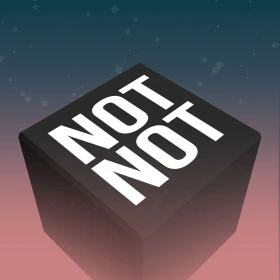Guest Contributor: Usman Ishaq
In 2025, self-care looks a little different. While long baths and digital detoxes still have their place, there’s a growing shift toward small, consistent routines that sharpen the mind while easing the body.
Brain games are at the center of this movement, not only as entertainment, but also as meaningful and accessible wellness tools. They don’t require memberships or specialized equipment, just a few focused minutes and a little curiosity.
For those looking to feel better, think clearly, or unwind without guilt, brain games may be one of the simplest and most empowering daily rituals to adopt.
The Science of Gaming for Mental Wellness
These games operate like workouts for the mind, strengthening cognitive skills while helping players manage emotional tension.
Neuroscience increasingly supports their value. Regular play has been linked to increased focus, improved memory recall, enhanced processing speed, and even better emotional regulation. When designed with intention, brain games promote what experts call cognitive resilience —the ability to remain mentally flexible and calm, even under stress.
This makes them an ideal addition to modern wellness routines. Unlike some traditional techniques, brain games are accessible, adaptable, and uniquely suited to digital lifestyles. Whether for ten minutes or thirty, playing a daily puzzle can make meaningful contributions to mental well-being.
5 Ways Brain Games Support Emotional Health
Brain games offer benefits that extend beyond cognitive improvement; they also promote emotional balance, stress reduction, and increased motivation. When used intentionally, these short sessions of engagement can become personal moments of reset.
Stress Reduction and Relaxation
Cozy, low-pressure puzzle games help disengage from mental clutter. Matching tiles, spotting differences, or completing visual tasks can soothe the nervous system and encourage a calmer state. This form of cognitive rest is ideal for transitional moments, before bed, after meetings, or during a busy day.
Improved Focus and Attention
Many brain games challenge players to hold attention for short, structured bursts. Whether it’s Sudoku or a fast-paced logic task, these activities demand sustained mental presence, which strengthens the ability to stay centered and productive in everyday life.
Boosted Confidence and Accomplishment
Completing a level, solving a puzzle, or unlocking a challenge provides immediate satisfaction. That sense of progress, even in small increments, can lift mood and reinforce self-efficacy. It’s a gentle but powerful reminder: you can complete difficult things, one step at a time.
Quicker Processing Speed
Timed games often train quick thinking and fast decision-making. When played regularly, they help reduce hesitation and improve the speed at which players identify solutions, beneficial both inside and outside the screen.
Mental Endurance and Consistency
While some wellness tools require a significant amount of time or emotional investment, brain games are more flexible. By showing up daily for a puzzle or game, players establish a mental rhythm that supports the development of lasting self-care habits. It’s not about difficulty, it’s about showing up.
Best Brain Games to Play in 2025
Each brain game provides a unique mental experience. Whether your goal is calm, clarity, or cognitive challenge, there’s a title ready to support you. Below are some of our favorite games, each tied to specific self-care benefits.
Ancestral Lines
This logic-based puzzle activates spatial memory and visual reasoning. Great for pattern builders and thinkers who enjoy structured complexity.
Explore Arkadium’s curated collection of free brain games designed for mental clarity, low-pressure focus, and meaningful enjoyment. Perfect for creating a custom self-care routine.
Expert Tips for Gaming as Self-Care
Making brain games a habit doesn’t require a major lifestyle overhaul. It’s the simplicity that makes them so powerful. Whether at work, at home, or during travel, these games can serve as small anchors throughout your day.
● Start with 10–15 minutes daily: Even short sessions are enough to begin building focus and relaxation. Many players start during coffee breaks or quiet evenings.
● Pair with existing routines: Link play to something you already do, such as your tea break, a post-lunch recharge, or winding down before bed.
● Select calming or energizing games based on your needs: Play Clutter Cornucopia when relaxing, or Not Not when your brain needs a boost.
● Track mood or focus improvements over time: Notice how you feel after a week of consistent play. Are you more focused? Calmer?
● Rotate your games: Changing up the type of challenge keeps your brain engaged and avoids stagnation.
Final Thoughts
Brain games are more than digital distractions. They’re becoming one of the most accessible and enjoyable wellness tools of 2025. Whether you’re managing stress, rebuilding focus, or seeking daily clarity, these short mental sessions offer tangible rewards. They empower you to take care of your mind through effort, fun, and presence.
Have a favorite game that helps you reset or refocus?
Share your tips in the comments; we’d love to hear how you’re using games for wellness. And if you’re ready to explore more, our full collection of calming, brain-boosting games is always just a click away.




